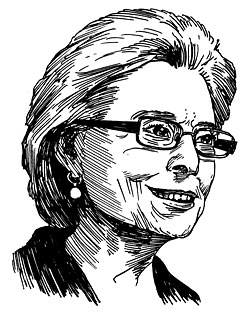
Earlier this month, you proudly signed into law a bill that legalized same-sex marriage in Washington State. How did gay rights become a signature issue for you?
When I was attorney general of Washington [1993–2005], I began working intensely on anti-bullying. And more often than not, I learned it was bullying associated with sexual orientation that would result in a student committing suicide or would precipitate an outrageous incident like Columbine or the school shooting in Moses Lake, Washington. At that same time, I was looking at hate crimes in Washington State. And again, many of the hate crimes that we were finding were sexual-orientation-related, not racially related. But obviously, I have been very conflicted with my underlying Catholic faith when it came to marriage.
When did that begin to change?
In 2006, I had been governor for one year, and we got an anti-discrimination bill passed. Then domestic partnerships the year after, and the year after that we expanded domestic partnerships. I was running for reelection that same year, and the marriage question came up, and I said, “The state’s not ready.” That was probably a reflection of not only where I felt the state was but also where I was. I remember saying to my campaign folks, “Don’t ask me again. I don’t want to discuss this issue.” It was an anger that built up in me because I was too conflicted. At that point I decided, “I need to come to grips with why I am so conflicted. Why don’t I feel good about the position I find myself in?” That really forced me to put the thoughtfulness into it. And in the end it wasn’t a day, it was wasn’t a month—it was years.
What were the decisive moments?
Doing anti-discrimination and domestic partnership was a process of everybody educating themselves along the way about how people feel about the issue. I listened to members of PFLAG [Parents, Families, and Friends of Lesbians and Gays], who have come to understand rather than rebuke a mom or a dad or a brother or a sister or a child who is gay. And my own daughters provided me with a thoughtful, open discussion on this subject, which was really moving for me. They see this as the civil-rights issue of their generation and do not understand the conflict of my generation.
At the end of your tenure as attorney general, a lawsuit challenged Washington State’s 1998 ban on same-sex marriage. You said you planned to defend it.
I took an oath to defend our laws whether I agreed with them or not. Ultimately, I was governor by the time the case went to our supreme court, but I will tell you that before I left, I thought every argument that my lawyers advanced before me didn’t work. The court decided 5-4 to uphold the law, and I think the decision that was made was flawed legally. This idea that marriage is meant for children—there are plenty of heterosexual couples who do not have children. We don’t discriminate against them.
So you think the law you were defending was unconstitutional?
Yes. When you look at the strength of separation of church and state in Washington’s Constitution, and you put up all the arguments, I can’t justify the court’s decision.
You’re part of a generation of Democratic politicians who have recently changed their positions on gay marriage. Do you have any regret that this didn’t happen sooner?
Yeah. I apologize that it took me so long. I feel better about my head and my heart than I have in seven years. But it took me time. I regret that it took me that much time, but it just did. And frankly, that’s no different than my own state, where over the last several years we’ve taken one step after the other. In 2009, the people of my state said “yes” to domestic partnerships. That was the first time that happened by referendum in the country. If you had asked the state to take that vote ten years earlier, it would have resoundingly failed. One of our Republican legislators from a very conservative area had her daughter come out a couple years ago. The daughter now has a very loving relationship, and that legislator wants to throw her a wedding. Now, would she have said that five years ago? I doubt it.